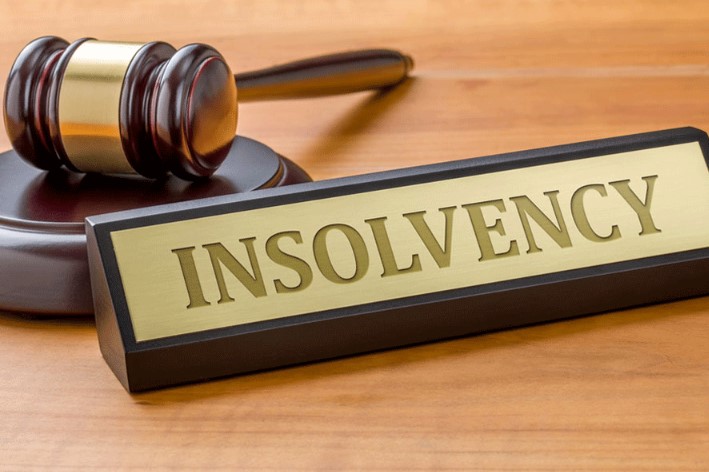Taxes on Student-Debt Relief Will Impact Black Borrowers

For some borrowers, the impression of the White House’s student-financial debt forgiveness application may perhaps be influenced by the interpretation and implementation of tax regulation.
A number of states may possibly end up taxing that relief, creating a condition where by borrowers have to make a payment of as substantially as $1,000 in the near term as a result of acquiring the long-phrase fiscal gain of cancellation. On Nov. 4, Supreme Court docket Justice Amy Coney Barrett declined to block the forgiveness system just after two debtors experienced claimed in a lawsuit it would consequence in them paying better condition taxes.
To understand how condition tax policy may impact eligible borrowers, Bloomberg News spoke with Dorothy Brown, the Martin D. Ginsburg Chair in Taxation at Georgetown University Law Middle and creator of The Whiteness of Prosperity: How the Tax System Impoverishes Black Individuals — and How We Can Correct It.
The discussion started with the latest lawsuit brought by two plaintiffs in Indiana and took location just before Coney Barrett’s decision Friday. The accommodate was to start with filed in September with 1 plaintiff who is a law firm with the libertarian Pacific Authorized Foundation in response, the Justice Department explained the govt experienced taken measures to make sure that man or woman — and anyone else who required to — could choose out of the application. The most current go well with likewise asked the Supreme Courtroom to act to prevent the cancellation from taking outcome.
What do you make of the authorized obstacle that posits that state taxes will negatively impact debtors whose financial loans are forgiven?
The Indiana lawyer is likely to are unsuccessful since he’s arguing he’s going to have to pay larger taxes, when he can opt out. If you never have to get the debt forgiveness, you really don’t have to pay out any taxes.
More importantly, there is this legal doctrine that claims you just can’t sue on any challenge if you do not have one thing called standing, which suggests there is a certain hurt you are alleging. There are longstanding instances that essentially say you simply cannot sue as a taxpayer just mainly because your taxes are heading to go up. Simply because if that was the case, you could visualize the lawsuits towards the 2017 Trump tax cuts. The argument that “I’m acquiring my taxes go up” flies in the encounter of heaps of precedent.
Federal regulation permits this debt relief to be tax-absolutely free since of the American Rescue Plan that the president signed in March 2021. In any point out that instantly conforms to federal regulation, there will be no taxes on this.
Two of the states that said they would tax university student-personal debt forgiveness — and a couple of states that mentioned they may well — are in the South, which has the optimum concentration of Black people in the nation. How could possibly taxation disproportionately hurt selected groups of persons?
It’s real 56{d616ec9028684cd1d98e2ce20ddd83529d937fc361d92b53bbf35263833540c8} of Black People live in the South. But of the populace whose financial debt is staying forgiven in the South, what’s that racial demographic? That is what I’d want to know. How a lot of Black debtors are finding this debt reduction and at the moment living in the South? Are we viewing the Black faculty grads living someplace else?
Black borrowers and other borrowers of colour are additional most likely to be Pell Grant recipients, that means they are suitable for $20,000 in aid, vs . $10,000 for some other borrowers. Does it stand to purpose then that if they get the full $20,000 and they reside in states that will tax their aid, they’ll be disproportionately impacted?
Unquestionably. The tax monthly bill is going to be increased, and a few quarters of Pell Grant recipients are Black and Latino.
Do you think about that speedy burden may be also considerably to bear for some persons?
You have to be creating a lot less than $125,000 a calendar year if you are single [to qualify for the relief], and we need to have to communicate about how substantially a lot less than $125,000 these persons are building. And if they’re living paycheck to paycheck, then a $1,000 [tax] monthly bill that you weren’t anticipating is going to be tricky to pay out — and people today may possibly need to have to weigh that. Naturally, in the extended term, [erasing] up to $20,000 could be fantastic, but how are you going to finance that thousand dollars? Are you likely to consider an progress on your credit score card, which is going to be an tremendous desire level — considerably higher than on your pupil credit card debt? Some may possibly have the luxury of [support from] family members, but analysis exhibits that Black people today never are likely to have entry to that intergenerational prosperity.
Is it value weighing if a person can soak up that more tax upcoming calendar year right before implementing?
I would say uncover a way to pay back the taxes and get that debt forgiven. Feel about it: $1,000 of a [tax] bill as opposed to $20,000 debt aid or $500 of a [tax] bill compared to $10,000 personal debt relief. It’s a serious brief-term pain, but I imagine it is a single well worth bearing.
You famous in a testimony to Congress very last 12 months that Black borrowers currently pay out extra taxes than their White counterparts. How may a a single-time university student-mortgage tax compound on other expenditures?
Every April 15, Black Individuals are paying out additional than their White counterparts are. So this is just one more example of a policy I would argue was developed to enable Black borrowers — and on the federal level does help Black debtors, mainly because they are not paying any excess taxes. It is the states that generally have regressive tax schemes that would be hitting Black debtors the toughest.
What could states be carrying out to make college student mortgage forgiveness extra equitable?
Just comply with the federal principles, which would let this to be tax-no cost. A state legislature could enact a one particular-off and basically say, “Forgiveness is not going to be taxed.”
And what can the federal govt be undertaking to further support people?
More pupil mortgage personal debt forgiveness — $10,000 or $20,000 is a fantastic commence. Now let’s do some more.
Pupil loan credit card debt is a drag. It’s a drag on home purchases, it is a drag on investing in their foreseeable future. It is a drag on the financial state, actually. If they did not have this personal debt all over their neck, they could make better money ideas heading forward.
Additional Election Protection From TIME







